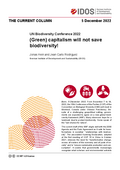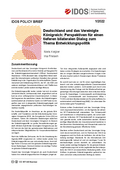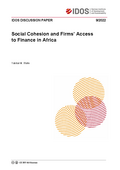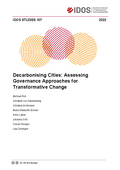-

Publications
Photo: www.shutterstock.com/de/image-photo/pont-du-gard-old-roman-aqueduct-45688924
Publications
The German Institute of Development and Sustainability (IDOS) publishes four independent publication series. IDOS researchers publish their current research results in Discussion Papers, Policy Briefs and Studies. Visiting scholars and cooperation partners also have the opportunity to publish their research results in one of the IDOS series. Publications from the series Analysen und Stellungnahmen, Briefing Paper and Two-Pager / Zweiseiter, which will be discontinued in 2022, will continue to be available online. The fourth publication series is for opinion pieces: The Current Column regularly comments on the latest developments and issues in international development policy.
IDOS researchers also regularly publish their research results in peer-reviewed and non-peer-reviewed German and international journals and publication series of other research institutes and institutions as well as with renowned book publishers. In addition, they use blogs and online platforms of partner institutions to communicate the Institute's research and advisory activities to an interested public.
Found 9409 results in 8 milliseconds. Displaying results 2941 to 2950 of 9409.
-
Peace agreement in Colombia – what next?
-
Expanding oil palm cultivation in Indonesia: changing local water cycles raises risks of droughts and floods
-
The G20 and Africa
-
African Alliances for Sustainable Development
-
The G20 and Africa – an alliance for sustainability?
-
Assessing the legal and political implications of the post-Cotonou negotiations for the Economic Partnership Agreements
-
Landwirtschaft und Wasser – Schlüssel zur Welternährung
-
Perspectives Africa
-
Rising powers and the provision of transnational public goods: conceptual considerations and features of South Africa as a case study
-
Postfaktische Entwicklungspolitik












